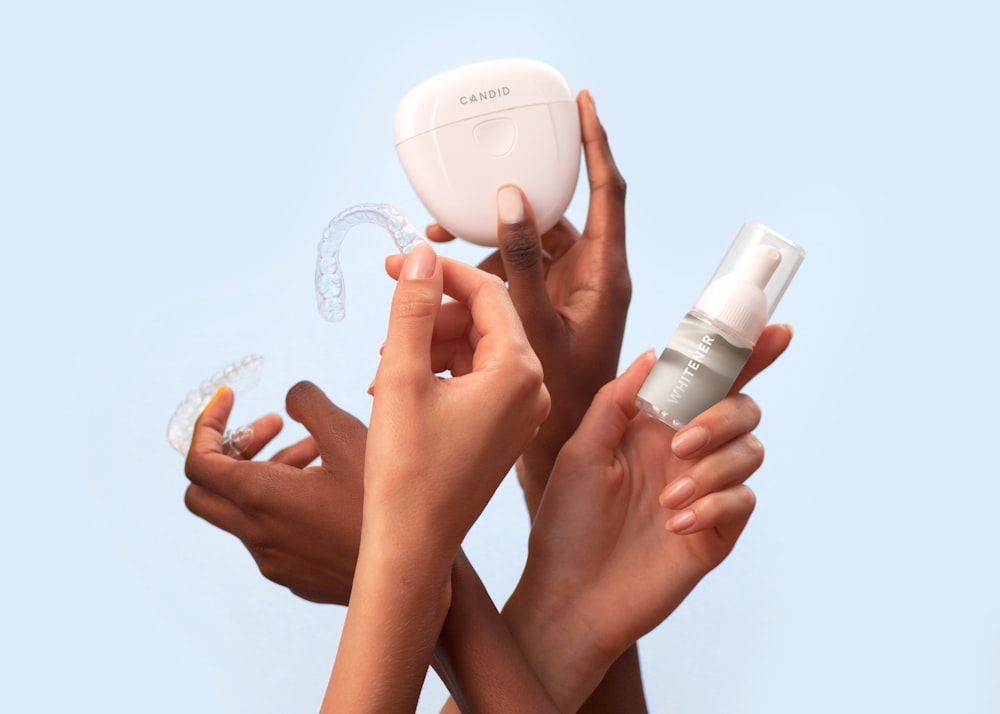Health Food
Vision Vitality Expert Tips for Optimal Eye Health

Unveiling the Secrets to Vision Vitality: Expert Tips for Optimal Eye Health
Understanding the Importance of Eye Health
Your eyes are precious windows to the world, allowing you to see and experience the beauty around you. Yet, it’s easy to take them for granted until vision problems arise. Understanding the importance of eye health is the first step towards preserving your precious gift of sight and ensuring a lifetime of visual vitality.
Nourish Your Eyes with a Healthy Diet
Just like the rest of your body, your eyes benefit from a balanced diet rich in nutrients that support vision health. Incorporate foods high in antioxidants, vitamins A, C, and E, omega-3 fatty acids, and zinc into your meals. Think colorful fruits and vegetables, leafy greens, nuts, seeds, and fatty fish. These nutrients help protect your eyes from age-related damage and maintain optimal visual function.
Protect Your Eyes from Harmful UV Rays
Exposure to ultraviolet (UV) rays from the sun can contribute to various eye problems, including cataracts, macular degeneration, and photokeratitis (sunburn of the cornea). Protect your eyes by wearing sunglasses that block 100% of UVA and UVB rays whenever you’re outdoors, even on cloudy days. Look for sunglasses labeled with UV 400 or 100% UV protection to ensure adequate shielding for your eyes.
Practice Proper Eye Hygiene and Safety
Maintaining good eye hygiene and safety practices is essential for preventing eye infections and injuries. Wash your hands frequently, especially before touching your eyes or handling contact lenses. Follow proper contact lens care and hygiene guidelines, including cleaning, disinfecting, and replacing lenses as recommended by your eye care provider. Additionally, wear protective eyewear when engaging in activities that pose a risk of eye injury, such as sports, DIY projects, or working with hazardous materials.
Give Your Eyes a Break from Digital Screens
In today’s digital age, many of us spend extended periods staring at screens—whether it’s computers, smartphones, tablets, or televisions. Prolonged screen time can lead to digital eye strain, characterized by symptoms like dry eyes, blurry vision, headaches, and neck or shoulder pain. To alleviate digital eye strain, practice the 20-20-20 rule: every 20 minutes, take a 20-second break to look at something 20 feet away. Additionally, adjust your screen settings, position your monitor at eye level, and use artificial tears as needed to keep your eyes lubricated.
Schedule Regular Eye Exams
Routine eye exams are crucial for maintaining optimal eye health and detecting potential problems early on. Schedule comprehensive eye exams with an eye care professional, such as an optometrist or ophthalmologist, at least once a year or as recommended based on your age, risk factors, and overall eye health. During the exam, your eye care provider will assess your vision, screen for eye diseases, and prescribe corrective lenses or treatment as needed to keep your eyes healthy and your vision clear.
Stay Hydrated for Healthy Eyes
Proper hydration is essential for overall health, including eye health. Drinking an adequate amount of water helps maintain the moisture balance
Achieve Radiant Skin Essential Tips for Healthy Glow
Unlocking Radiant Skin: Essential Tips for a Healthy Glow
Embarking on a journey towards radiant skin is an endeavor many seek. To achieve that coveted healthy glow, incorporating essential skincare tips into your routine is paramount. Here’s a guide to help you on your path to luminous skin.
Prioritize Sun Protection
Shielding your skin from harmful UV rays is crucial for maintaining its health and radiance. Make sunscreen a non-negotiable step in your skincare regimen, applying it generously every day, rain or shine. Opt for a broad-spectrum sunscreen with SPF 30 or higher to safeguard against both UVA and UVB rays.
Stay Hydrated Inside and Out
Hydration is key to healthy skin, both internally and externally. Ensure you’re drinking an adequate amount of water throughout the day to keep your skin hydrated from within. Additionally, incorporate hydrating skincare products into your routine, such as moisturizers and serums, to lock in moisture and maintain a supple complexion.
Cleanse Gentle, Cleanse Thoroughly
Proper cleansing is essential for removing dirt, oil, and impurities from your skin, paving the way for better absorption of skincare products. Opt for a gentle cleanser that effectively removes debris without stripping the skin of its natural oils. Be diligent about cleansing both morning and night to keep your skin clean and fresh.
Exfoliate Regularly
Regular exfoliation is vital for sloughing away dead skin cells and promoting cell turnover, revealing fresh, radiant skin underneath. Incorporate a gentle exfoliant into your skincare routine 2-3 times per week to prevent dullness and congestion. Be mindful not to over-exfoliate, as this can lead to irritation and sensitivity.
Nourish with Antioxidants
Antioxidants play a crucial role in protecting the skin from environmental damage and oxidative stress. Incorporate antioxidant-rich skincare products into your routine, such as vitamin C serums and antioxidant-infused moisturizers, to combat free radicals and promote a healthy, youthful complexion.
Get Adequate Sleep
They don’t call it beauty sleep for nothing – getting enough rest is essential for skin health and vitality. Aim for 7-8 hours of quality sleep each night to allow your skin time to repair and regenerate. Invest in a good skincare routine before bed to maximize the benefits of your beauty rest.
Maintain a Healthy Diet
What you put into your body reflects on your skin, so maintaining a healthy diet is key to achieving radiant skin. Incorporate plenty of fruits, vegetables, lean proteins, and healthy fats into your meals to provide your skin with essential nutrients and antioxidants. Limiting processed foods and excess sugar can also help prevent skin issues such as acne and inflammation.
Manage Stress Levels
Stress can wreak havoc on your skin, triggering inflammation, breakouts, and premature aging. Implement stress-relieving techniques into your daily routine, such as meditation, deep breathing exercises, or yoga, to help keep your stress levels in check. Taking time for self-care and relaxation can work wonders for your skin and overall well-being.
Be Consistent
Consistency is key when it comes to skincare – results don’t happen overnight. Stick to your
Boost Brainpower Top Vitamins for Optimal Cognitive Function
Unlocking the Power of Vitamins for Brain Development
Understanding the Importance of Brain Development
Embarking on the journey of life, one of the most crucial aspects we encounter is the development of our brain. From infancy to adulthood, the brain undergoes remarkable growth and transformation, shaping our cognitive abilities, emotional responses, and overall well-being. This intricate process is influenced by various factors, with nutrition playing a pivotal role in nurturing optimal brain development.
Essential Vitamins for Cognitive Growth
Among the array of nutrients essential for brain health, certain vitamins stand out for their profound impact on cognitive growth. Vitamin B complex, comprising B1, B2, B3, B6, B9 (folate), and B12, plays a crucial role in supporting nerve function, neurotransmitter synthesis, and overall brain health. Additionally, vitamin D has garnered attention for its role in promoting neuroplasticity, the brain’s ability to adapt and form new connections.
Fueling Brainpower with Omega-3 Fatty Acids
In addition to vitamins, omega-3 fatty acids are vital for optimal brain development. Docosahexaenoic acid (DHA), a type of omega-3 fatty acid found abundantly in fatty fish like salmon and mackerel, is a key component of brain cell membranes and supports cognitive function. Eicosapentaenoic acid (EPA), another omega-3 fatty acid, exhibits anti-inflammatory properties, which may benefit brain health by reducing oxidative stress and inflammation.
Nourishing the Mind with Antioxidants
Antioxidants play a crucial role in protecting the brain from oxidative damage caused by free radicals. Vitamins C and E, along with other antioxidant compounds like flavonoids and polyphenols found in fruits, vegetables, and nuts, help neutralize free radicals and support brain health. These antioxidants also contribute to the maintenance of healthy blood vessels, ensuring optimal blood flow to the brain.
Supporting Neurotransmitter Production
Neurotransmitters are chemical messengers that facilitate communication between brain cells, or neurons. Certain vitamins, such as vitamin B6 and folate, are involved in the synthesis of neurotransmitters like serotonin, dopamine, and norepinephrine, which play key roles in mood regulation, memory, and cognitive function. Adequate intake of these vitamins is essential for maintaining optimal neurotransmitter levels and supporting overall brain health.
Promoting Neuroplasticity and Learning
Neuroplasticity, often referred to as the brain’s ability to reorganize and adapt in response to experiences, is fundamental for learning and memory formation. Vitamin D has emerged as a key player in promoting neuroplasticity, influencing the growth of new neurons and synaptic connections. By supporting neuroplasticity, vitamin D contributes to enhanced learning, memory retention, and cognitive flexibility.
Addressing Nutritional Deficiencies
Despite the importance of vitamins and nutrients for brain development, many individuals may experience deficiencies due to poor dietary choices, inadequate intake, or underlying health conditions. Addressing these nutritional deficiencies through dietary modifications, supplementation, or medical interventions is essential for optimizing brain health and supporting cognitive function at every stage of life.
Optimizing Brain Health Across the Lifespan
From infancy to old age, prioritizing brain health is essential for maintaining cognitive function and overall well-being. Providing infants and young children with a nutrient-rich diet rich in vitamins, omega-3 fatty acids, and antioxidants
Maximize Your Workouts Finer Form Multi-Functional Bench”
Elevate Your Workouts with the Finer Form Multi-Functional Bench
Versatility in Training
When it comes to home gym equipment, versatility is key. The Finer Form Multi-Functional Bench offers just that and more. Whether you’re looking to build muscle, burn fat, or improve your overall fitness, this bench has you covered. With its adjustable design and multiple exercise options, it’s like having an entire gym in the comfort of your own home.
All-in-One Fitness Solution
Gone are the days of cluttering your home gym with multiple pieces of equipment. The Finer Form bench serves as an all-in-one fitness solution, allowing you to perform a wide range of exercises targeting various muscle groups. From bench presses and dumbbell flyes to leg curls and decline sit-ups, this bench enables you to engage in a full-body workout without the need for multiple machines.
Superior Design and Construction
Quality is paramount when it comes to home gym equipment, and the Finer Form bench delivers. Constructed from heavy-duty steel and featuring a sleek, ergonomic design, this bench is built to withstand the rigors of intense workouts while providing optimal support and stability. Its padded seat and backrest ensure comfort during extended training sessions, while its compact footprint makes it ideal for smaller home gym spaces.
Adjustable for All Fitness Levels
Whether you’re a beginner or a seasoned fitness enthusiast, the Finer Form bench can be customized to suit your individual needs and fitness level. With adjustable incline and decline settings, as well as multiple seat positions, you can easily modify the bench to accommodate different exercises and target specific muscle groups. This versatility makes it suitable for users of all fitness levels, from beginners to advanced athletes.
Enhanced Workout Efficiency
With the Finer Form bench, you can say goodbye to wasted time and inefficient workouts. Its intuitive design and easy-to-use features streamline your exercise routine, allowing you to transition between exercises quickly and seamlessly. This means less time spent adjusting equipment and more time focused on pushing your limits and achieving your fitness goals.
Space-Saving Solution
For many fitness enthusiasts, space is a precious commodity. The Finer Form bench offers a space-saving solution without sacrificing functionality or performance. Its compact design makes it easy to store when not in use, freeing up valuable floor space in your home gym. Plus, its lightweight construction allows for easy transportation and maneuverability, so you can move it around as needed to maximize your workout space.
Endless Exercise Options
With the Finer Form bench, the possibilities are endless. Whether you’re looking to target your chest, shoulders, back, arms, or legs, this bench offers a variety of exercise options to help you achieve your fitness goals. From classic strength-training exercises like bench presses and rows to dynamic bodyweight movements like decline sit-ups and step-ups, there’s no shortage of ways to challenge your body and take your workouts to the next level.
Invest in Your Fitness Future
Investing in home gym equipment is an investment in your health and well-being. With the
Brighten Your Smile Effective Dental Care Practices
In Pursuit of a Radiant Smile
Understanding the Importance of Dental Care
Maintaining good oral hygiene is not just about having a bright smile; it’s a crucial aspect of overall health. Your oral health can impact various aspects of your life, from your confidence to your systemic well-being. Understanding the importance of dental care is the first step towards achieving a radiant smile and optimal health.
The Foundation of Dental Wellness: Effective Brushing Techniques
Proper brushing techniques lay the foundation for dental wellness. Using a soft-bristled brush and fluoride toothpaste, gently brush your teeth in circular motions to remove plaque and food particles. Don’t forget to brush your tongue and the roof of your mouth to eliminate bacteria and freshen your breath.
Flossing: A Vital Component of Dental Hygiene
Flossing is often overlooked but is essential for reaching areas between teeth where your toothbrush can’t reach. By flossing daily, you remove plaque buildup and reduce the risk of gum disease and tooth decay. Incorporate flossing into your daily routine to maintain optimal dental hygiene.
The Role of Proper Nutrition in Dental Health
What you eat directly impacts your oral health. Avoid sugary and acidic foods that can erode tooth enamel and promote cavities. Instead, opt for a balanced diet rich in fruits, vegetables, lean proteins, and dairy products. These foods provide essential nutrients that strengthen teeth and gums, promoting overall dental health.
Regular Dental Check-ups: Preventive Care Matters
Regular visits to the dentist are crucial for preventive care. Dental professionals can detect oral health issues in their early stages, preventing them from progressing into more significant problems. Additionally, professional cleanings remove stubborn plaque and tartar buildup, keeping your smile bright and healthy.
Understanding the Signs of Dental Problems
Being aware of common signs of dental problems can help you address issues before they escalate. Watch out for symptoms like tooth sensitivity, gum inflammation, persistent bad breath, or changes in tooth color. If you experience any of these signs, don’t hesitate to schedule an appointment with your dentist.
Taking Action Against Gum Disease
Gum disease is a prevalent oral health issue that can lead to serious complications if left untreated. It begins with inflammation of the gums (gingivitis) and can progress to periodontitis, causing irreversible damage to the gums and underlying bone. Proper oral hygiene and regular dental check-ups are essential for preventing and managing gum disease.
The Impact of Lifestyle Choices on Oral Health
Your lifestyle choices can significantly impact your oral health. Avoid habits like smoking and excessive alcohol consumption, as they can increase the risk of gum disease, tooth decay, and oral cancer. Additionally, protect your teeth from injury by wearing a mouthguard during sports activities and avoiding using your teeth as tools.
Specialized Dental Care: Addressing Unique Needs
Some individuals may require specialized dental care to address unique dental needs. This may include orthodontic treatment to correct misaligned teeth, dental implants to replace missing teeth, or cosmetic procedures to enhance the appearance of your smile. Consulting with
Advanced Radiology Services: Precision Imaging for Your Health

Advanced Radiology Services: Precision Imaging for Your Health
Revolutionizing Diagnostic Imaging
In the realm of healthcare, the field of radiology services has undergone a remarkable transformation, revolutionizing diagnostic imaging. Advanced radiology services utilize cutting-edge technology to provide precision and clarity in capturing detailed images of the internal structures of the body. This article explores the significance of these services in modern healthcare.
Comprehensive Imaging Modalities
Radiology services encompass a wide range of imaging modalities, each serving a unique purpose in diagnosis and treatment planning. From X-rays and CT scans to MRI and ultrasound, these modalities allow healthcare professionals to visualize the intricacies of bones, organs, and tissues. The comprehensive nature of these services enables accurate and timely diagnoses.
Early Detection and Prevention
One of the primary benefits of advanced radiology services is their role in early detection and prevention. Through routine screenings and diagnostic imaging, healthcare providers can identify potential health issues at their nascent stages. This early detection is crucial for implementing preventive measures and initiating timely treatments, ultimately improving patient outcomes.
Tailored Imaging for Varied Needs
Radiology services are not one-size-fits-all; they are tailored to meet the diverse needs of patients. Whether it’s detecting fractures, evaluating soft tissue injuries, or imaging the brain for neurological conditions, advanced radiology can be customized to address specific medical concerns. This tailored approach enhances the diagnostic precision of the imaging process.
3D Imaging and Advanced Visualization
Advancements in radiology services include the incorporation of 3D imaging and advanced visualization techniques. These technologies offer healthcare professionals a more in-depth understanding of anatomical structures, aiding in surgical planning and guiding minimally invasive procedures. The three-dimensional perspective enhances the accuracy of diagnoses and interventions.
Radiology Services in Oncology
In the field of oncology, radiology services play a pivotal role in cancer diagnosis, staging, and treatment monitoring. Techniques like PET scans and specialized MRI sequences provide detailed insights into tumor characteristics, helping oncologists make informed decisions about the most effective treatment strategies for individual patients.
Interventional Radiology: Minimally Invasive Procedures
Another dimension of radiology services is interventional radiology, which involves minimally invasive procedures guided by imaging. From angiography to image-guided biopsies, these interventions offer an alternative to traditional surgery, reducing risks, and promoting faster recovery. Interventional radiology is a testament to the versatility of radiological techniques.
Radiology Services: A Link to Specialized Care
When healthcare providers recommend radiology services, they are often a crucial link to specialized care. Radiologists, with their expertise in interpreting imaging results, collaborate with other medical specialists to form a comprehensive understanding of a patient’s health. This collaboration ensures a multidisciplinary approach to diagnosis and treatment.
Patient-Centric Approach
In the era of patient-centered care, advanced radiology services emphasize a patient-centric approach. This involves clear communication with patients about the necessity and benefits of imaging procedures, addressing concerns, and ensuring a comfortable and informed experience. The aim is to empower patients with knowledge and involve them in their healthcare journey.
Exploring Advanced Radiology Services
If you are curious about the capabilities of advanced
HEALTH FOOD FOR YOUR HEALTHY LIFE
You are what you eat is commonly heard in our society. It is indeed true because everything you eat will become your source of energy or become your enemy later. You may be wondering how to eat the healthy food for your healthy life? Recently the awareness of healthy living increases rapidly among the public. Pay attention to your food intake that goes into your body will lead you to the healthy life. Choose the appropriate health food for your healthy life. Actually, it is very easy to add the food that rich in nutrient and also tasty. You can create a menu that not only tempting for your appetite but also gives you long-term health benefits. What kind of health food should you have? Try to have each of this health food for your everyday menu and you will see the impact to your body.
Broccoli
The first health food broccoli which is famous for the cancer prevention. It could give you immune enhancing and attack cancer. Broccoli is also high in fiber. It helps to excrete cholesterol and can improve the cardiovascular health. You only need to cook broccoli in a small amount of time. Steam it for 20 minutes or boiled it in the hot water for only 3 minutes.
Egg
The other health food for your healthy life is the egg. It contains high-quality protein, important minerals, and vitamins. One egg contains a third of the daily amount of vitamin K that is recommended for women. To get maximum benefits from the egg, you can eat it two or three servings a week.
Oatmeal
The other health food oatmeal. A high fiber oatmeal makes you feel full longer. It could accelerate the metabolism in your body. Stabilize the blood sugar levels because of the vitamin, zinc, magnesium, and antioxidants in it.
Banana
The last health food banana. You can find banana anywhere anytime easily. Banana contains high potassium that good for prevents stroke and high blood pressure. Many people consume it to help the weight loss program.
You need to consume many healthy foods for your own life. To maintain your body fitness after all your activities all day, you need to take different kinds of healthy food in order to stay fit and prevent diseases.…




